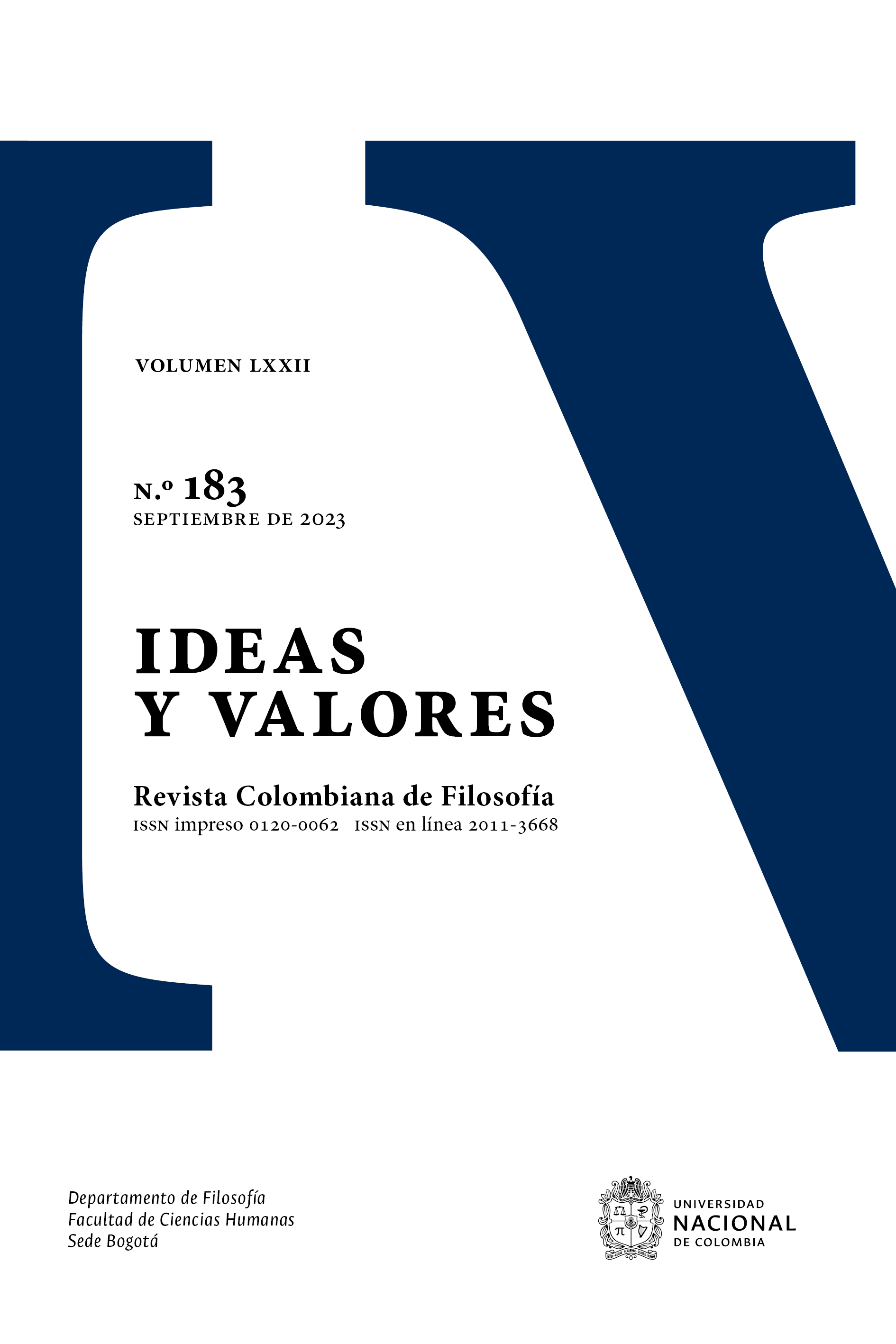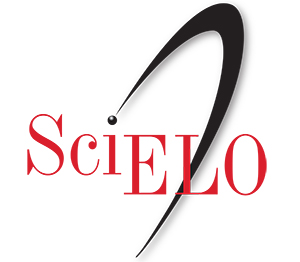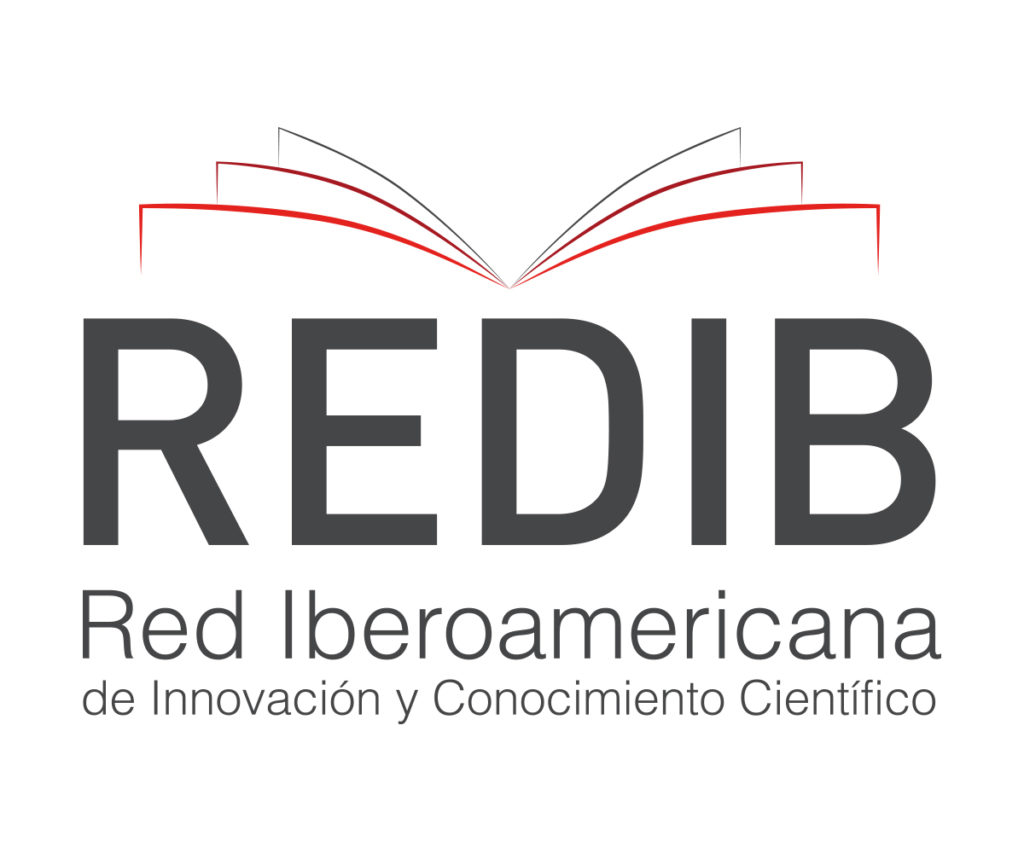Endurantismo y extensión espacio-temporal
Endurantism and spatio-temporal extension
DOI:
https://doi.org/10.15446/ideasyvalores.v72n183.91210Palabras clave:
Endurantismo, Perdurantismo, Extensión Temporal, Partes Temporales, Locación (es)endurantism , temporal extension, location, temporal parts, perdurantism (en)
Descargas
Según la caracterización extendida del debate entre endurantistas y perdurantistas, los objetos materiales persisten temporalmente o bien en virtud de estar totalmente presentes en distintos momentos de tiempo, o bien en virtud de poseer partes temporales en distintos momentos de tiempo. El presente artículo se propone realizar una defensa de la teoría endurantista de las objeciones presentadas por Barker y Dowe (2003; 2005) y Hofweber y Velleman (2011). Dichas objeciones intentan mostrar que el Endurantismo (i) supone lógicamente la tesis característica de la teoría perdurantista y (ii) es internamente incoherente. En contra de estas objeciones, argumento que al menos en algunas de sus versiones, la teoría endurantista es perfectamente coherente y no supone ningún compromiso con la existencia de partes temporales.
According to the extended characterization of the debate between endurantists and perdurantists, material objects persist temporally either by virtue of being fully present at different moments in time, or by virtue of possessing temporal parts at different moments in time. The present paper sets out to make a defense of the endurantist theory from the objections raised by Barker and Dowe (2003; 2005) and Hofweber and Velleman (2011). Those objections attempt to show that Endurantism (i) logically assumes the characteristic thesis of perdurantist theory and (ii) is internally inconsistent. Against these objections, I argue that at least in some of its versions, Endurantist theory is perfectly coherent and assumes no commitment to the existence of temporal parts.
Referencias
Barker, Stephen y Dowe, Phil. “Paradoxes of Multi-location”. Analysis 63.2 (2003): 106-114. DOI: https://doi.org/10.1093/analys/63.2.106
Barker, Stephen y Dowe, Phil. “Endurance is Paradoxical”. Analysis 65.1 (2005): 69-74. DOI: https://doi.org/10.1093/analys/65.1.69
Calosi, Claudio y Costa, Damiano. “The Multi-location Trilemma”. Erkentnnis 87 (2022): 1073-89.
Costa, Damiano. “The Transcendist Theory of Persistence”. Journal of Philosophy 114.2 (2017): 57-75. DOI: https://doi.org/10.5840/jphil201711425
Cotnoir, Aaron. “Is Weak Supplementation Analytic?”. Synthese 198 (2022): 4229-4245. DOI: https://doi.org/10.1007/s11229-018-02066-9
Crisp, Thomas. “Presentism”. The Oxford Handbook of Metaphysics. Editado Michael Loux y Dean W. Zimmernman. Oxford: Oxford University Press, 2003.
Donnelly, Maureen. “Using Mereological Principles to Support Metaphysics”. Philosophical Quarterly 61.243 (2011): 225-46. DOI: https://doi.org/10.1111/j.1467-9213.2010.683.x
Eagle, Anthony. 2016. “Multiple Location Defended”. Philosophical Studies 173.8 (2016): 2215-31. DOI: https://doi.org/10.1007/s11098-015-0605-z
Effingham, Nikk y Robson, Nicholas. “A Mereological Challenge to Endurantism”. Australasian Journal of Philosophy 85.4 (2007): 633-40. DOI: https://doi.org/10.1080/00048400701728541
Fine, Kit. “Things and their Parts”. Midwest Studies in Philosophy 23.1 (1999): 61-74. DOI: https://doi.org/10.1111/1475-4975.00004
Fine, Kit. “In Defence of Three-dimensionalism”. Philosophy 62 (2008): 1-16. DOI: https://doi.org/10.1017/S1358246108000544
Gilmore, Cody. “Where in the Relativistic World Are We?”. Philosophical Perspectives 20.1 (2006): 199-236. DOI: https://doi.org/10.1111/j.1520-8583.2006.00107.x
Gilmore, Cody. “Time Travel, Coinciding Objects, and Persistence”. Oxford Studies in Metaphysics, Volume 3. Editado por Dean Zimmerman. Oxford: Oxford University Press, 2007. 177-98. DOI: https://doi.org/10.1093/oso/9780199218394.003.0006
Hofweber, Thomas. “The Meta-problem of Change”. Noûs 43.2 (2009): 286-314. DOI: https://doi.org/10.1111/j.1468-0068.2009.00707.x
Hofweber, Thomas y Velleman, David. “How to Endure”. Philosophical Quarterly 61. 242 (2011): 37-57. DOI: https://doi.org/10.1111/j.1467-9213.2010.671.x
Kim, Jaegwon. “Events as Property Exemplifications”. Action Theory. Editado por Myles Brand y Douglas Walton. Boston: D. Rediel, 1976. 310-26. DOI: https://doi.org/10.1007/978-94-010-9074-2_9
Kleinschmidt, Shieva. “Shaping up Location: Against the Humean Argument for the Extrinsicality of Shape”. Philosophical Studies 172.8 (2014): 1973-83. DOI: https://doi.org/10.1007/s11098-014-0382-0
Kleinschmidt, Shieva. “Multi-location and Mereology”. Philosophical Perspectives 25.1 (2011): 253-73. DOI: https://doi.org/10.1111/j.1520-8583.2011.00215.x
Lewis, David. On the Plurality of Worlds. Oxford: Basil Blackwell, 1986.
Markosian, Ned. “Simples”. Australasian Journal of Philosophy 76.2 (1998): 213-226. DOI: https://doi.org/10.1080/00048409812348361
Markosian, Ned. “Brutal Composition”. Philosophical Studies 92.3 (1998a): 211-49. DOI: https://doi.org/10.1023/A:1004267523392
McDaniel, Kris. “Brutal Simples”. Oxford Studies in Metaphysics, Volume 3. Editado por Dean Zimmerman. Oxford: Oxford University Press, 2007. 233-66. DOI: https://doi.org/10.1093/oso/9780199218394.003.0008
McDaniel, Kris. “Extended Simples”. Philosophical Studies 133.1 (2007a):131-41. DOI: https://doi.org/10.1007/s11098-006-9010-y
Mellor, David Hugh. Real Time II. Routledge: New York, 1998 DOI: https://doi.org/10.4324/9780203302675
Miller, Kristie y Braddon-Mitchell, David. “The Physics of Extended Simples”. Analysis 66.3 (2006): 222-6. DOI: https://doi.org/10.1093/analys/66.3.222
Mozersky, Jan. “Presentism”. The Oxford Handbook of Philosophy of Time. Editado por Craig Callender. Oxford: Oxford University Press, 2011. 122-43. DOI: https://doi.org/10.1093/oxfordhb/9780199298204.003.0006
Parsons, Josh. “Must a Four-Dimensionalist Believe in Temporal Parts?”. The Monist 83.3 (2000): 399-418. DOI: https://doi.org/10.5840/monist200083319
Parsons, Josh. “Theories of Location”. Oxford Studies in Metaphysics, Volume 3. Editado por Dean Zimmerman. Oxford: Oxford University Press, 2007. 201-32. DOI: https://doi.org/10.1093/oso/9780199218394.003.0007
Pashby, Thomas. “How Do Things Persist? Location Relations in Physics and the Metaphysics of Persistence’. Dialectica 70.3 (2016): 269-309. DOI: https://doi.org/10.1111/1746-8361.12150
Rea, Michael. “Four-Dimensionalism”. The Oxford Handbook of Metaphysics. Editado por Michael Loux y Dean Zimmernman. Oxford: Oxford University Press, 2003. 246-80
Rossi, Carlo. “Time-Travel and Multi-location Endurance”. Teorema 39.3 (2020): 35-54.
Sider, Ted. Four Dimensionalism. Oxford: Clarendon Press, 2001. DOI: https://doi.org/10.1093/019924443X.001.0001
Simons, Peter. “Extended Simples: A Third Way between Atoms and Gunk”. The Monist 87.3 (2004): 371-84. DOI: https://doi.org/10.5840/monist200487315
Sullivan, Meghan. “The Minimal A-Theory”. Philosophical Studies 158.2 (2012): 149-74. DOI: https://doi.org/10.1007/s11098-012-9888-5
Sullivan, Meghan. “Change We Can Believe in (and Assert)”. Noûs 48.3 (2014): 474-95. DOI: https://doi.org/10.1111/j.1468-0068.2012.00874.x
Wasserman, Ryan. “Theories of Persistence”. Philosophical Studies 173.1 (2016): 243-50. DOI: https://doi.org/10.1007/s11098-015-0488-z
Wiggins, David. Continuants: Their Activity, Their Being, and Their Identity. Oxford: Oxford University Press, 2016. DOI: https://doi.org/10.1093/acprof:oso/9780198716624.001.0001
Zimmerman, Dean. “The A-Theory of Time, the B-Theory of Time and ‘Taking Tense Seriously’”. Dialectica 59.4 (2005): 401-57. DOI: https://doi.org/10.1111/j.1746-8361.2005.01041.x
Cómo citar
MODERN-LANGUAGE-ASSOCIATION
ACM
ACS
APA
ABNT
Chicago
Harvard
IEEE
Turabian
Vancouver
Descargar cita
Licencia
Derechos de autor 2021 Los derechos son del autor(es), quien(es) puede re-publicar en parte o en su totalidad el documento ya publicado en la revista siempre y cuando se dé el debido reconocimiento a Ideas y Valores

Esta obra está bajo una licencia internacional Creative Commons Atribución-NoComercial-SinDerivadas 4.0.
De acuerdo con la Licencia Creative Commons Atribución-No Comercial-SinDerivar 4.0 Internacional. Se autoriza copiar, redistribuir el material en cualquier medio o formato, siempre y cuando se conceda el crédito a los autores de los textos y a Ideas y Valores como fuente de publicación original. No se permite el uso comercial de copia o distribución de contenidos, así como tampoco la adaptación, derivación o transformación alguna de estos sin la autorización previa de los autores y de la dirección de Ideas y Valores. Para mayor información sobre los términos de esta licencia puede consultar: http://creativecommons.org/licenses/by-nc-nd/4.0/legalcode.















.jpg)











